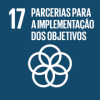
2nd Aqua-Synapse Project Workshop at the GIMM Foundation in Lisbon
Workshop brings together researchers to discuss scientific advances on the effects of low deuterium water on human health
Sustainable Development Goals (SDG)


On 14 April 2025, the 2nd Workshop of the Aqua-Synapse project was held in Lisbon, Portugal, at the premises of the GIMM Foundation – Gulbenkian Institute of Molecular Medicine (GIMM). Aqua-Synapse is a project funded by the European Commission's European Research Executive Agency and is coordinated by Professor Sergiy Lyubchyk from Universidade Lusófona.
The main objective of this second workshop was to review and discuss the current state of the art and future perspectives for each Work Package (WP), following the completion of the project’s first phase (RP1). The event featured detailed presentations by each team leader on the progress and outcomes of the following WPs:
- WP1: Deuterium metabolic spectroscopy and deuterium metabolic imaging
- WP2: Impact of deuterium on the excitatory/inhibitory (E/I) balance in a human neural network model
- WP3: Assessment of the effects of deuterium depletion in animal models of metabolic syndrome
- WP4: Evaluation of the impact of deuterium depletion in animal models of ageing
- WP5: Production of low-deuterium water samples and control, and monitoring of deuterium content in experimental tissues
- WP6: Project management and dissemination activities
The workshop concluded with a roundtable discussion that fostered knowledge exchange and strategic planning for the project's next steps, including mobility, scientific research and outcomes, communication and dissemination efforts, and the possible integration of a new company into the consortium. This workshop was organised by GIMM in collaboration with Universidade Lusófona. All consortium partners were represented, either in person or online, including: Universidade Lusófona/COFAC (PT); University Hospital of Würzburg (DE); HYD LLC. for Cancer Research and Drug Development (HU); Gulbenkian Institute of Molecular Science (PT); University of Oxford (UK).
The Aqua-Synapse Project aims to investigate the mechanisms by which low-deuterium water may have beneficial effects on human health, particularly in diseases such as cancer. Studies suggest that high concentrations of deuterium can cause mitochondrial dysfunction, whereas lower concentrations appear to have positive effects. However, the precise levels at which these metabolic and behavioural improvements become apparent are not yet known. The project seeks to confirm this hypothesis and develop ways to measure these benefits.
Related Courses
Other News
- Caleidoscopio Vol. 1 No. 2: The Dream of Digital Reason?
- Lusófona University lecturer is patron of “Bicicleta Inclusiva Intergeracional”
- Criar Saberes | Dias Abertos | Às Quartas na Lusófona
- Biomedical Engineering students visit the Alcoitão Rehabilitation Centre
- Lusófona Filmes presented short films at the Portuguese Cinematheque











